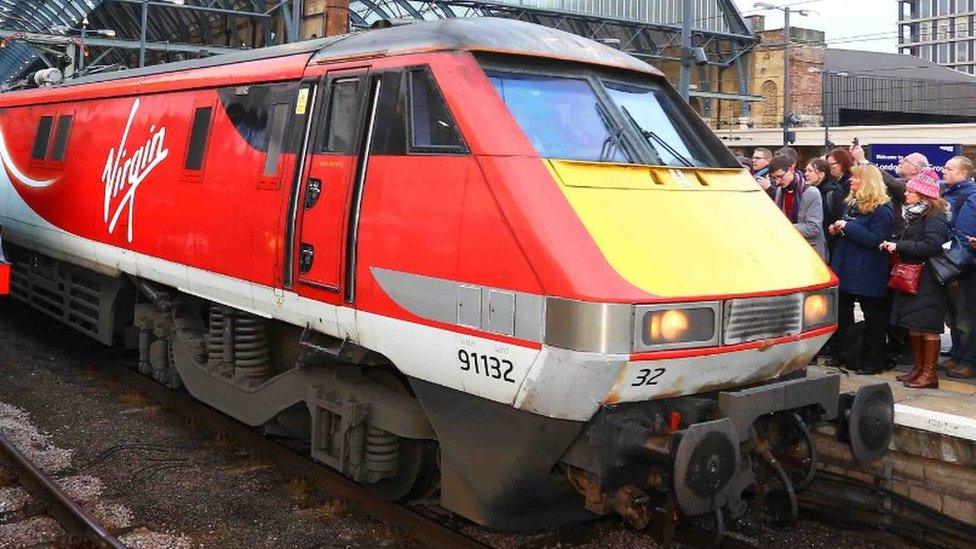East Coast Main Line takeover: Your questions answered
- Published
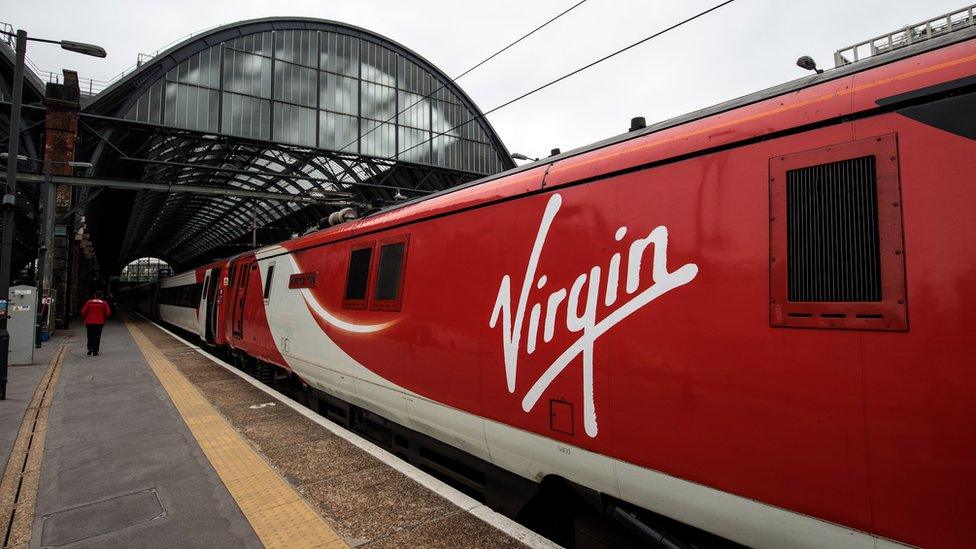
On 24 June, rail services on the East Coast Main Line will be brought back under government control.
The service, currently run by Stagecoach and Virgin Trains, will be handed over to the Department for Transport, who will run it until a public-private partnership can be appointed in 2020.
This is the third time a franchise on the East Coast Main Line has failed.
The BBC's Transport correspondent, Victoria Fritz, answers your questions about what went wrong and what the future holds for the franchise.

Why does the franchise keep failing? - Anonymous
There's no one single factor.
What does keep happening is that those who have won the franchise have consistently overestimated what they are capable of delivering.
When bids are put together, private companies estimate how much money they will make on ticket sales over the eight years of the franchise.
The temptation is to err on the side of optimism in order to win the bid.
Equally, the government has to assess the validity of competing bids to check that they are realistic.
In the case of East Coast, the three private companies that have tried to run it over the last 11 years, and the government of the day, got their numbers wrong.

Will Virgin staff lose their jobs? Where will the staff to run the new service come from? - Alan Hillary, County Durham
People who are directly employed by Virgin Trains East Coast will transfer over to London and North Eastern Railway (LNER), which is what the service will be renamed.
No disruption is expected to services as a result of this transfer.
Pay will remain the same for staff as contracts will transfer under the Transfer of Undertakings (Protection of Employment) Regulations, external.

Is it true that when the government ran the route previously, it made a profit? - Anonymous
It is true. Directly Operated Railways made about a billion pounds from 2009 to 2015 before the line was reprivatised.
However, it's worth stating that the same amount of money was made on the same line by the Virgin Trains East Coast franchise in only three years.

What happens to tickets booked and paid for relating to travel after the handover in June? - Kate
Tickets for future travel along the route will still be valid.
Train services will continue to run as normal and you do not need to change your journey plans.
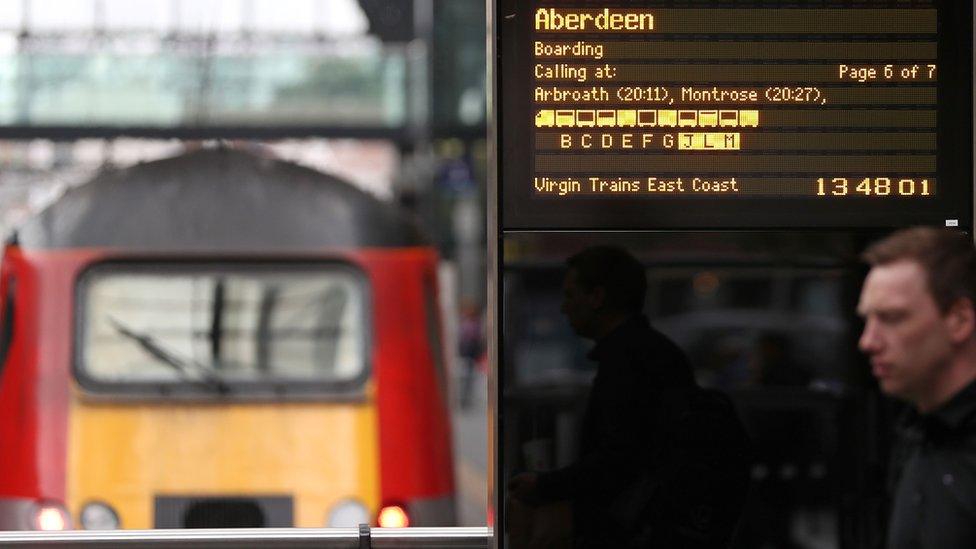
Usually a business has to pay to get out of a contract. Why hasn't that happened here? - David, Buckinghamshire
In some ways it has.
Even though the franchise was unable to make the money it thought it would, it paid the shortfall from its own pocket to make sure it met its obligations to the government.
Stagecoach, the company that owned 90% of the Virgin Trains East Coast franchise, will have to pay an outstanding performance bond. That's thought to be around £19m.
There will also be a one-off expense of around £75m because the assets are not recoverable.

Why can't the East Coast Main Line be sold as an independent company? Why does it have to be run as a franchise?- Mike Steinbach, Israel
The franchise model is the system by which the government has decided to run the railway.
It believes that this way the risk falls on the franchise and not on taxpayers.
By awarding a franchise, the government is able to control the routes and ticket prices. It also gives them some oversight of how much money it will make and when.
An independent company would have no obligation to keep providing a public service if it became unprofitable. It could potentially stop services, cancel routes and rapidly raise ticket prices.

Who owns the trains that currently run on the line? - Shelia
Trains (carriages, locomotives and freight vehicles) in Britain are, in 99% of cases, actually not owned by franchises.
They are owned by a number of rolling stock companies and leased to businesses.
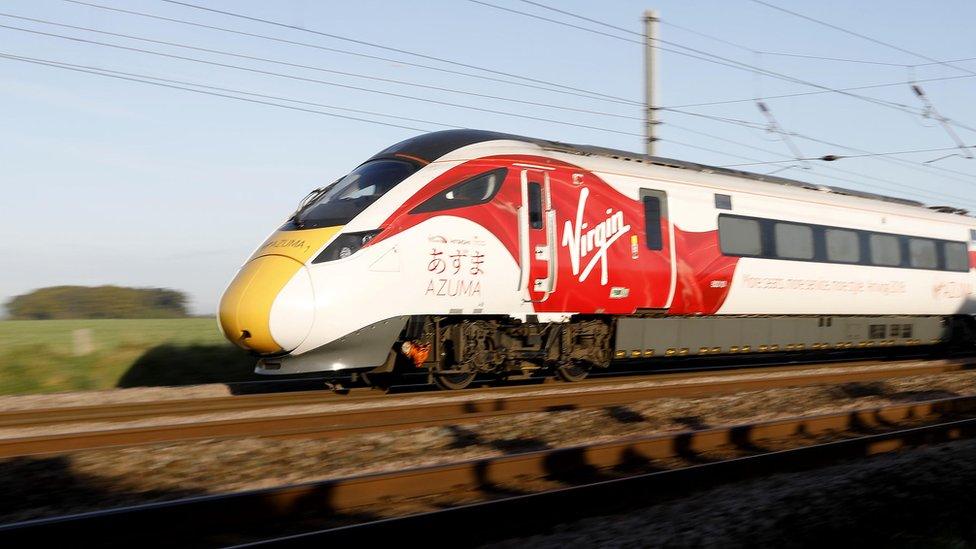
Azuma trains are expected to be rolled out on the line in December
What does this mean for the prospective upgrade of the rolling stock to Hitachi Azuma trains later this year? - Steve Dodding
Two brand new Hitachi trains arrived from Japan earlier in the year and are being used for training on-board crew and drivers.
This new fleet of 65 trains is still expected to be rolled out in December.
Transport Secretary Chris Grayling said in the Commons that the new trains will just have different branding.

Produced by George Pierpoint and Kris Bramwell
- Published16 May 2018
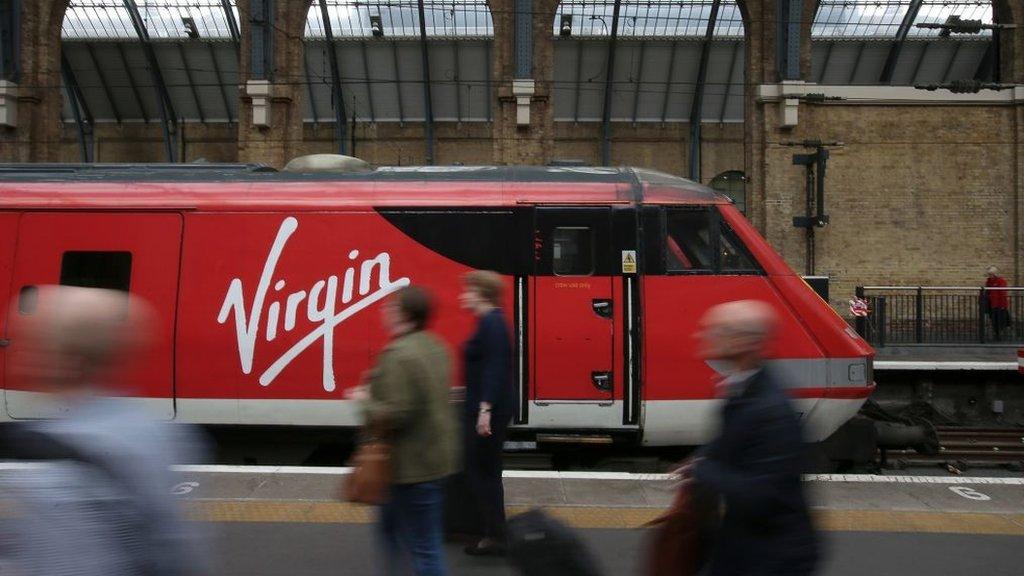
- Published16 May 2018
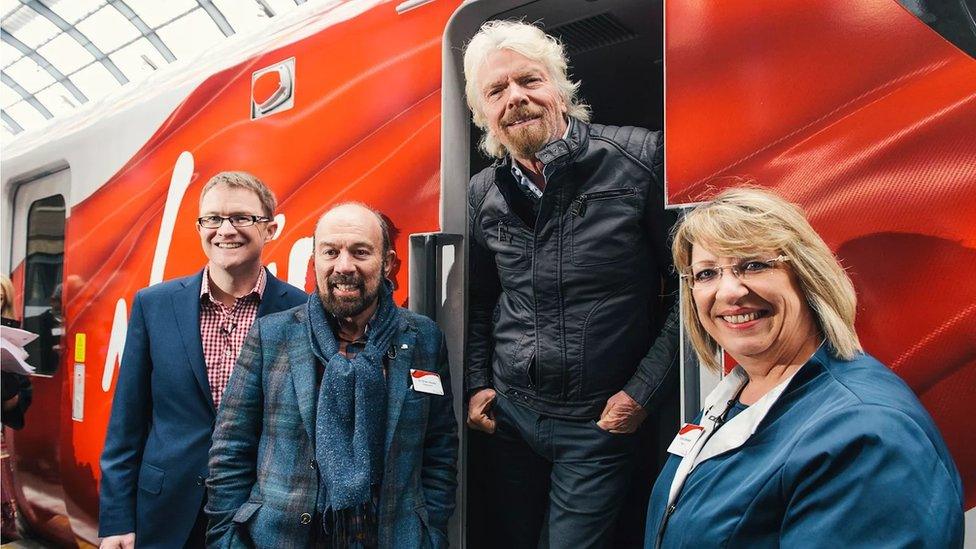
- Published16 May 2018
